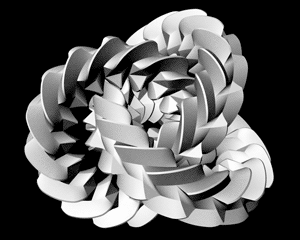 Complicit with the unbearable lightness of privilege (see previous blog), oppression is a constant burden. Like privilege, when unacknowledged by the oppressed, it becomes a fact of life unquestioned and unchallenged as it is unknown. Instead of manifesting in lightness, oppression is weight. As I think I have made clear, I fall in the privileged category. I do not know oppression first-hand in any way, shape, or form. I have merely observed it through my upbringing and my work and I have read and learned about it as a way of deepening my understanding of my own privilege. I fought against it every day when I worked with youth. The depth and breadth of assumptions and judgments they had about their own poverty, blackness, age, and even neighborhood were stunning and troubling – even to someone who thought himself enlightened. In fact, their internalized negative assumptions were the ultimate barrier not only to achieving the dreams they still had individually (their oppression yet only partially internalized) but also to the improvement of our schools and community. Their oppression was both individual and structural, implicit in their schools and community and fueling their early process of internalization. We had to start our work with every young person by helping them think critically about what they had internalized and how that impacted the choices they made and the opportunities they sought. Internalized oppression changes the way we dream. I recall one simple and brief conversation with a young woman who lived in public housing in a rather chaotic family situation who had told me she wanted to be a dental hygienist. I told her I thought that was great and asked her why she wanted to do that. As she talked, she expressed a broad interest in dentistry, the science, the business, the people. So, I asked without thinking why she didn’t want to become a dentist rather than a dental hygienist. It left her somewhat dumbfounded, which left me dumbfounded. It had never crossed her mind. It was the first thing that crossed mine. Aside from this rather simple example, our work trying to liberate each other of our oppressions (and privilege for me) was often brutal work and had to be done in a safe way and in a manner in which we had time and space to deal with anger and confusion and more questions that it spurred for them about themselves, about the adults in their lives, the systems that were supposedly there to support them. As they became more critical and more liberated, they also began to feel that burden of oppression more fully. We were externalizing it. They went from living but never seeing it to seeing it everywhere they turned, while still living it. This was powerful work, but it was dangerous work. These youth needed to see their oppression so they could begin to liberate themselves from it, reclaim power from it, but it wasn’t something we could immediately just go out and change. We had to start small and individual and work from there. While all of my youth and most of my community could point at and name experiences where they were treated differently because of their race, or their age, or their perceived income or whatever, they mostly processed those at the level of the interaction, focusing on the individual experience. They never saw the system that was supporting their marginalization; the structures that consistently and persistently delivered the same type of negative message for everyone like them. One of the stories we used to help process this growing awareness of systemic and institutional forces was the Parable of the Boiling Frog. While simple and fairly grotesque, the Parable of the Boiling Frog illustrates the fact that a frog that is dropped into boiling water will scramble for its life to get out. This obviously makes sense to most of us and is how we would react to such pain or danger. On the other hand, if that frog is dropped into room temperature water that slowly rises to a boil, it will never even try to escape. The frog will make incremental adaptations to survive the environment that ultimately leads to its death. This is the story of internalized oppression. We adapt to messages about our worth, about our possibility, about the quality of our character or our family or community one message at a time. And, when those messages all align in a way that consistently and persistently tells us we are lesser then we begin to believe we are lesser. At some point, we accept the fact that we are lesser. We accept our slow death without ever even recognizing it. So, how do we get out of that slowly boiling pot? Even as personal enlightenment and liberation unfold, the systems and structures of oppression are generations in the making and will be generations in the dismantling. Just because we liberate our minds doesn’t mean the systems are ready to change. We have to transform our personal liberation into something that impacts the world around us. Lest we become overwhelmed by this responsibility, we must remind ourselves that we have the chance to impact the world not just through grand social actions but through every interaction. We have the power to open hearts with every conversation, liberate minds by modeling our own liberation, by putting our own challenges and development out there for others to see, to find solace and motivation in. image from: https://www.shapeways.com/product/J5WVPUPLB/triple-gear
0 Comments
Leave a Reply. |
Categories
All
Archives
April 2024
|
 RSS Feed
RSS Feed